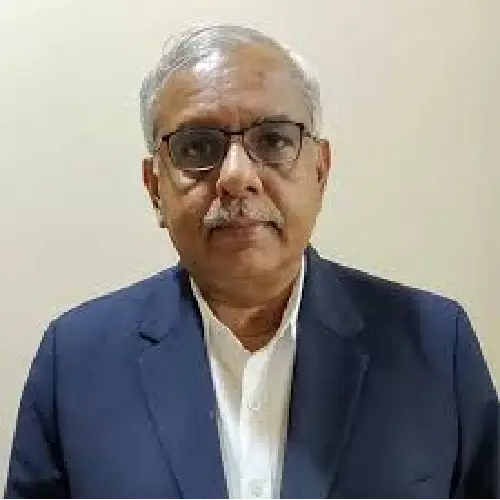General Surgery
Dr. Nitin Gandhi
This branch of surgery covers the main areas of surgical treatment. General surgeons treat diseases of the abdomen, breast, head and neck, blood vessels, and digestive tract.

Services

Appendix
Your comprehensive guide to a safer tomorrow at Gandhi Nursing Home...

Hernia
A tissue protrusion through a weak area in the abdominal muscles, such as a portion of the intestine...

Non mesh hernia repair
A muscle tear in the abdominal wall is called a hernia. It can be found in a variety of places...

Gall Bladder
Surgical removal of the gallbladder, typically due to conditions like gallstones or inflammation, often performed laparoscopically...

Fistula
An irregular tube that forms from inside your anus to the skin outside is called an anal fistula. The top region of your anus...

Ingrown toenail
A frequent problem known as ingrown toenails occurs when the side or corner of a toenail grows into the soft tissue...

Piles
Surgical procedures to remove or reduce hemorrhoids, which are swollen veins in the rectum or anus causing discomfort...

Diabetic foot surgery
Long standing or Chronic Uncontrolled Diabetes leads to many problems. The increased sugar leads to injury...

Breast Diseases
Surgical treatment of various breast conditions, including benign tumors, infections, or cancer, often involving...
Who is General Surgeon?
A general surgeon specialized and have knowledge about surgical operations. Surgery is any procedure that changes body tissues to diagnose or treat diseases. General surgeons are part of the surgical team, which also includes anesthesiologists, nurses, and surgical technicians. You will discuss the procedure with the surgeon before the operation.
What does a General Surgeon do?
Some operations require a surgeon who specializes in certain things, such as a heart (heart) surgeon or a neurosurgeon (brain surgeon), but not all. General surgeons understand the basic areas of surgery. They are:
- Digestive tract
- Abdomen and its contents
- Skin and soft tissues, including sinuses
- Head and neck Blood vessels and heart
- Endocrine system (hormones and glands)
- Cancer surgery Treatment
- Surgical treatment of trauma
Nowadays, most general surgeons are familiar with minimally invasive techniques such as laparoscopy. Laparoscopic surgery involves much smaller tools, including a miniature camera, which allows the surgeon to see what is happening in your body. These specialized instruments mean that surgeons can make much smaller incisions than traditional surgery.
General surgeons have a broad understanding of many different diseases and conditions. They will advise you whether you need surgery and what type of surgery is appropriate.
What are the common procedures General Surgeons Perform?
- Appendectomy – Surgeons use this treatment to treat appendicitis or removal of the appendix.
- Breast surgery – If your doctor suspects breast cancer, you may need breast surgery. Breast surgery can also treat non-cancerous tumors that distort or cause breast problems. Some of the more common breast surgeries include Breast biopsy, lumpectomy, and mastectomy.
- Colon and rectal surgery – Surgeons perform operations on the colon and rectum to treat various diseases, including bowel obstruction, cancer, Crohn’s disease, diverticulitis, injuries, and
- Hemorrhoids.
Esophageal surgery – The esophagus is a hollow tube from the mouth to the stomach. Since the esophagus plays a vital role in the digestion process, esophageal problems can affect nutrient intake and overall quality of life. - Gastroenterology procedures – General surgeons perform various procedures to diagnose and treat gastrointestinal diseases (GI).
- Hernia repair – Hernia repair is the surgical correction of hernia. A hernia occurs when an organ or other structure protrudes from a weak area in a tissue or muscle.
- Varicose Vein Resection – A general surgeon can remove large, twisted varicose veins that protrude through the skin.
- Thyroidectomy – The thyroid is located in the front and lower neck of the neck. This gland produces hormones that are important for metabolism.
- Spleen Resection – The spleen is an organ located next to the stomach on the left side of the body. He has several important jobs. Destroy damaged blood cells. Help prevent infection.
- Wound repair – Many wounds will heal over time or through medication. More serious injuries may require the attention of the surgeon.

